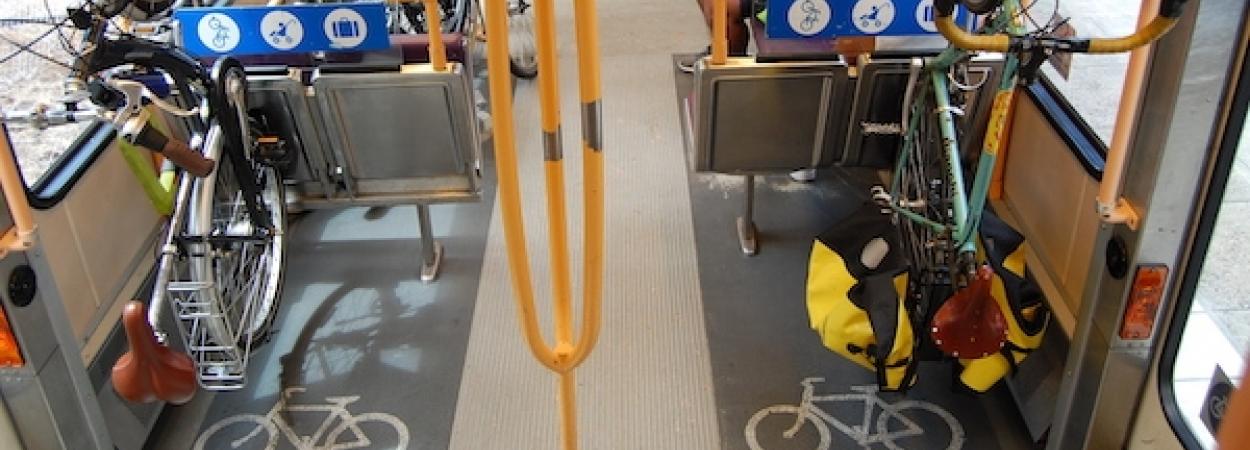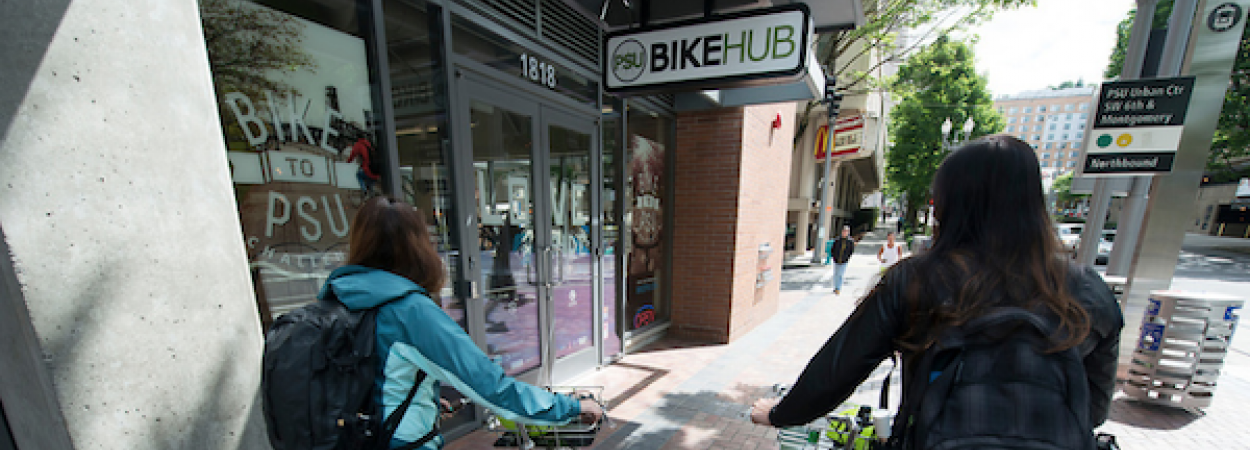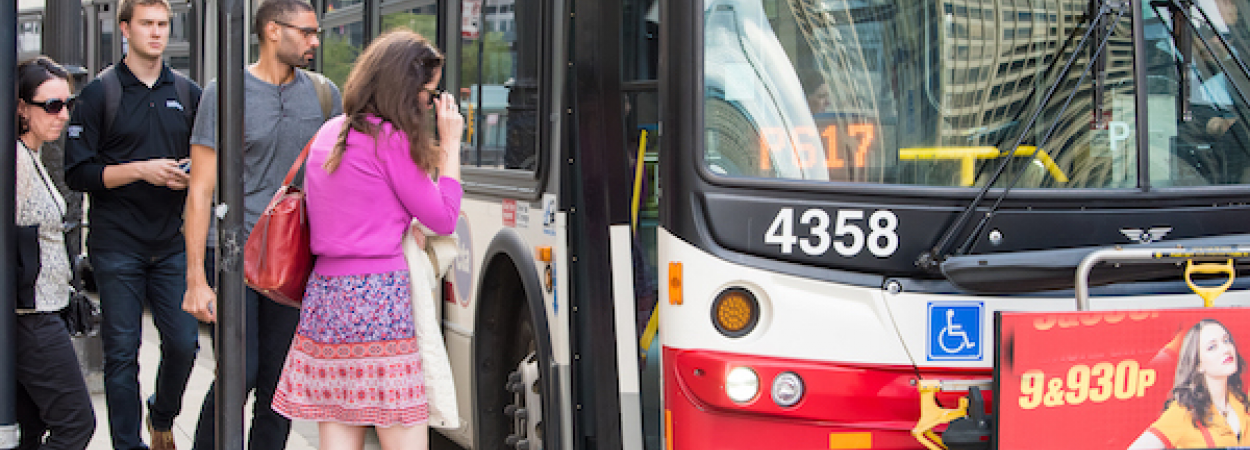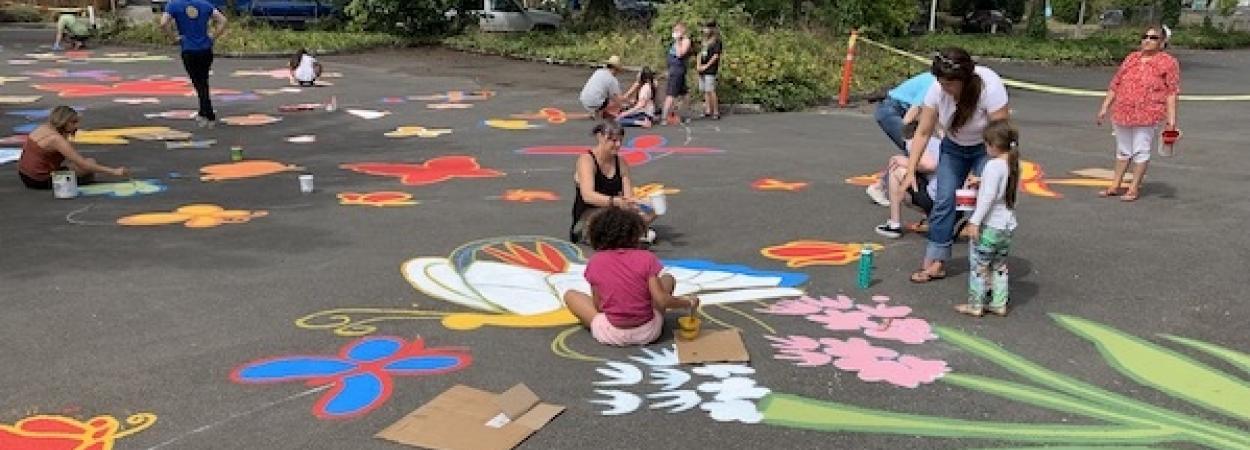 |  |  |

In June 2019, the City of Portland Bureau of Transportation (PBOT) launched a new incentive package aimed at making transportation more accessible for low-income households. In the "Transportation Wallet for Residents of Affordable Housing" pilot program, people living in affordable housing developments received access to free transportation options like transit passes, bike or scooter share memberships, rideshare and carshare credits.
Portland State University researchers evaluated the pilot program to find out how participants used the Transportation Wallet and how it helped them use different transport modes to get around.
A February 2021 paper in Transportation Research Record by Huijun Tan, Nathan McNeil, John MacArthur and Kelly Rodgers presents insights into the implementation and effectiveness of a transportation financial incentive program for low-income populations. Access…
Read More
Citing two TREC studies, Congressman Jimmy Panetta of the 20th District of California and Congressional Bike Caucus Chairman Earl Blumenauer of Oregon have introduced the Electric Bicycle Incentive Kickstart for the Environment (E-BIKE) Act to encourage the use of electric bicycles, or e-bikes.
The E-BIKE Act creates a consumer tax credit that:
The first TREC study referenced, The E-Bike Potential: How E-Bikes Can Improve Sustainable Transportation, f…
Read More
The Portland State University Bike Hub has received funding to purchase 25 electric bikes via a new grant from Portland General Electric.
The Bike Hub is a full-service retail bike shop on campus, opened in 2010. The shop offers long-term bike rental through its VikeBike program, a fleet of over 140 bikes offered at low cost (or no cost, based on need). The program’s existing fleet was assembled by collecting and refurbishing abandoned bikes on campus and made available to students for long-term rentals.
PSU will use this funding to purchase 25 Batch Bicycles e-bikes, to supplement the rental fleet and provide greater access to those living further from campus or those with physical barriers to cycling, and serve as a pilot program toward the eventual full replacement of the rental fleet with e-bikes.
Read…
Read More
Photo by Page Light Studios/iStock
Two national research centers at Portland State University have been awarded a new contract from the National Academies of Science (NAS): TCRP J-11/Task 40: Homelessness: A Guide for Public Transportation. We interviewed the two principal investigators to learn more about this new collaboration:
JOHN MACARTHUR, Sustainable Transportation Manager, Transportation Research and Education Center (TREC) at Portland State University
Five years ago the NAS completed TCRP S…
Read More
Photo by Sam Balto
Since 2013, local transportation activist group Better Block PDX has developed partnerships with organizations across the Portland Metro area. Most notable were the connections that emerged between the communities’ needs for tactical urbanism solutions and the expertise of Portland State University (PSU) transportation students.
Over the last few years, that collaboration evolved and formalized into Better Block PSU, a pathway program that integrates tactical urbanism into the engineering and planning curriculum at PSU. Now led by PSU’s Transportation Research and Education Center, the latest project to advance through the program is Re-imagining a Safer Route to the César Chávez School: N. Willis Blvd. & N. Portsmo…
Read More